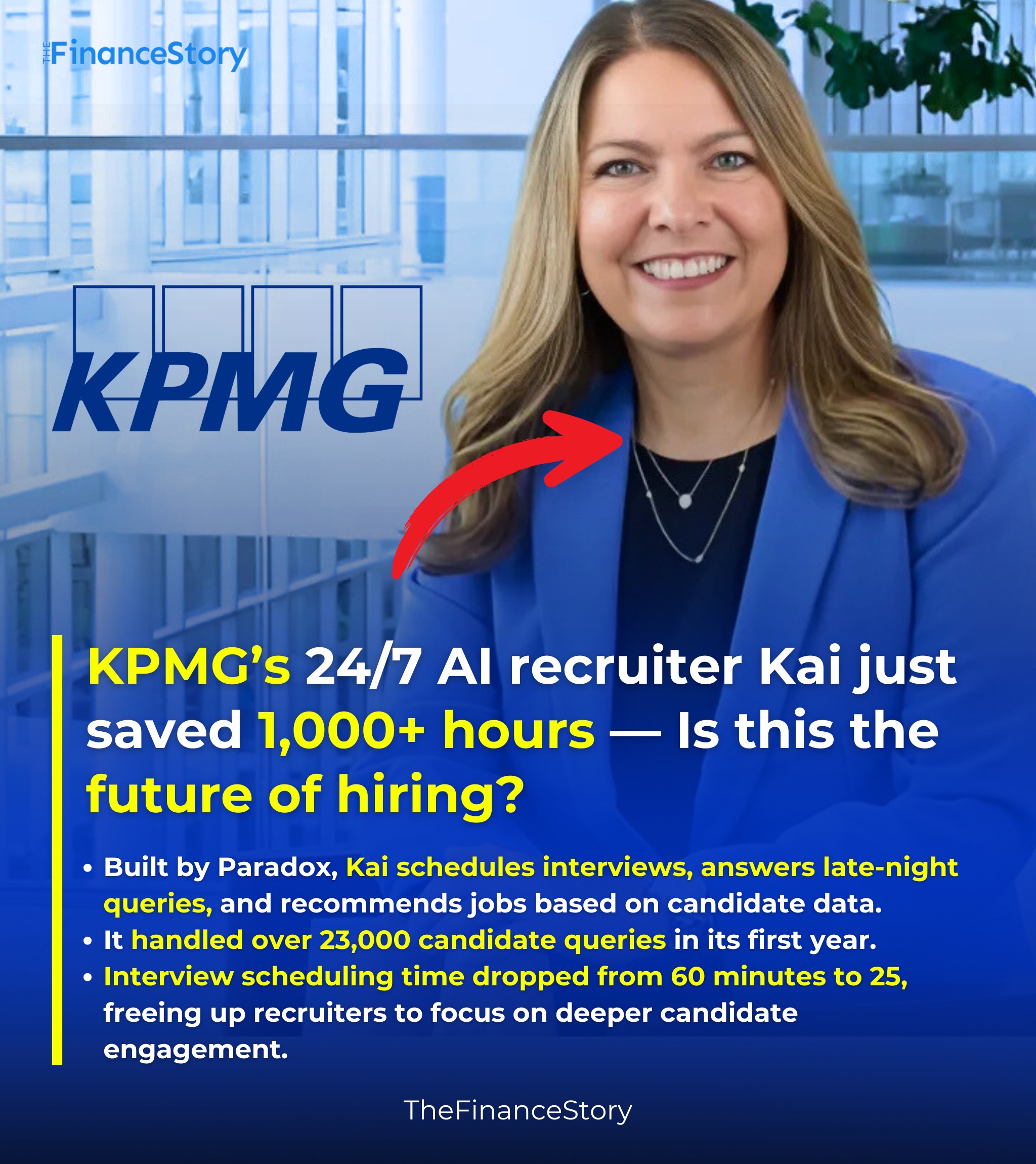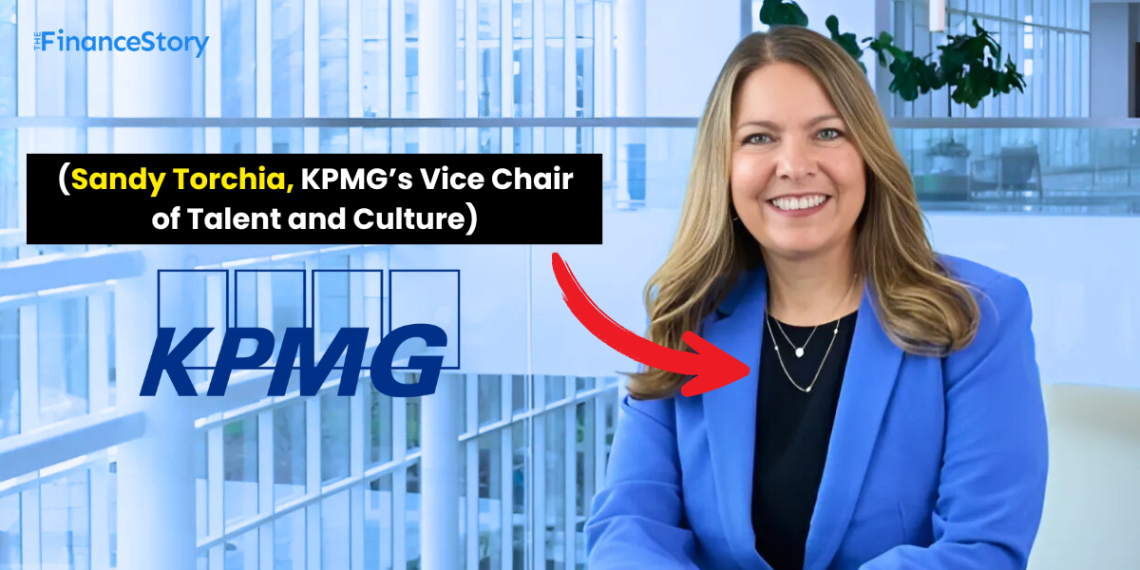- AI in recruitment and HR — the end of human teams or a blessing in disguise?
- Kai, KPMG’s AI hiring assistant, has already saved the firm over 1,000 recruiter hours in just one year.
- Here’s how.

What’s happening?
There’s been a lot of speculation about AI taking over the jobs of recruiters and HR teams.
But what if, instead of replacing them, it actually enhances their roles — by eliminating mundane, repetitive tasks while keeping the human touch?
That’s where Kai comes in.
It’s an AI Recruiting Assistant that doesn’t need coffee. It doesn’t take breaks.
“We weren’t trying to build the next robot recruiter; we just wanted to stop wasting human time on things that don’t need a human,” says Sandy Torchia, KPMG’s Vice Chair of Talent and Culture.
About KPMG’s Kai
Kai was built in partnership with Paradox, a hiring tech startup.
However, it is not here to screen candidates or make hiring decisions.
What it handles exceptionally well are the administrative tasks that typically bog down the entire hiring process.
Including:
- Scheduling interviews
- Answering late-night candidate questions
- Recommending roles based on a person’s experience and location
Also read: Meet first AI-investor, trained by top founders at Y Combinator…who just wired $100k!
How AI is streamlining KPMG’s recruitment process
From hours to minutes
Before Kai, scheduling interviews could take up to an hour per candidate.
Now? It’s down to 25 minutes. That’s a whopping 58% reduction!
Those time savings have translated to over 1,000 hours returned to the talent acquisition team. That time is now reinvested in more strategic work.
Handling queries after hours
Most job seekers are active after working hours.
Good news for candidates though; the AI assistant is available 24/7 and answers questions about job roles, benefits, work hours, and how to apply without getting annoyed.
In its first year alone, Kai handled over 23,000 candidate queries, and a third of them came in after hours.
Smart role matches for candidates
21.5% of candidates who chatted with Kai showed interest in the jobs it suggested.
Kai does this by using basic details like their location, experience, and what they’re looking for — helping match them with the right roles at KPMG.
FAQ
1. How AI is used in recruitment?
AI is being used in recruitment to streamline processes, reduce manual effort, and improve candidate experience. Here’s how KPMG is utilizing AI through Kai:
- Resume screening: AI tools quickly scan and filter resumes based on job criteria, saving recruiters hours of manual work.
- Interview scheduling: AI assistants (like KPMG’s Kai) automate the back-and-forth of scheduling interviews.
- Candidate matching: AI analyzes skills, experience, and preferences to suggest the most suitable roles for applicants.
- Chatbots for FAQs: AI chatbots handle candidate questions 24/7 about job roles, benefits, and application steps.
- Predictive analytics: AI can forecast candidate success and retention based on historical hiring data.
2. Is AI a threat to Accountants?
Not exactly. Here’s why:
What AI can do:
- Automate repetitive tasks (data entry, invoice processing, reconciliations)
- Generate financial reports instantly
- Help with tax prep, audits, and even forecasting
- Spot anomalies or fraud using pattern detection
However, Accountants who embrace AI will spend less time crunching numbers and more time advising clients, solving problems, and making decisions.
3. How do different accounting firms use AI?
KPMG
AI Assistant “Kai”: Automates interview scheduling, answers candidate queries 24/7, and recommends roles — saving over 1,000 recruiter hours.
KPMG Clara: An AI-powered audit platform that helps auditors analyze massive datasets quickly, spot anomalies, and flag potential risks in real time.
Deloitte
PairD: Deloitte’s proprietary AI chatbot, designed to assist employees with various tasks, aiming to automate routine activities and free up time for more strategic work.
PwC (PricewaterhouseCoopers)
GL.ai (in partnership with MindBridge AI): Analyzes entire general ledgers in seconds to identify high-risk transactions auditors should focus on.
EY (Ernst & Young)
EY Fabric: A tech platform that uses AI to unify tax and finance data for better decision-making.
EY.ai: A global platform combining proprietary AI tools, EY’s industry experience, and large language models (LLMs) from tech partners like Microsoft and OpenAI.







